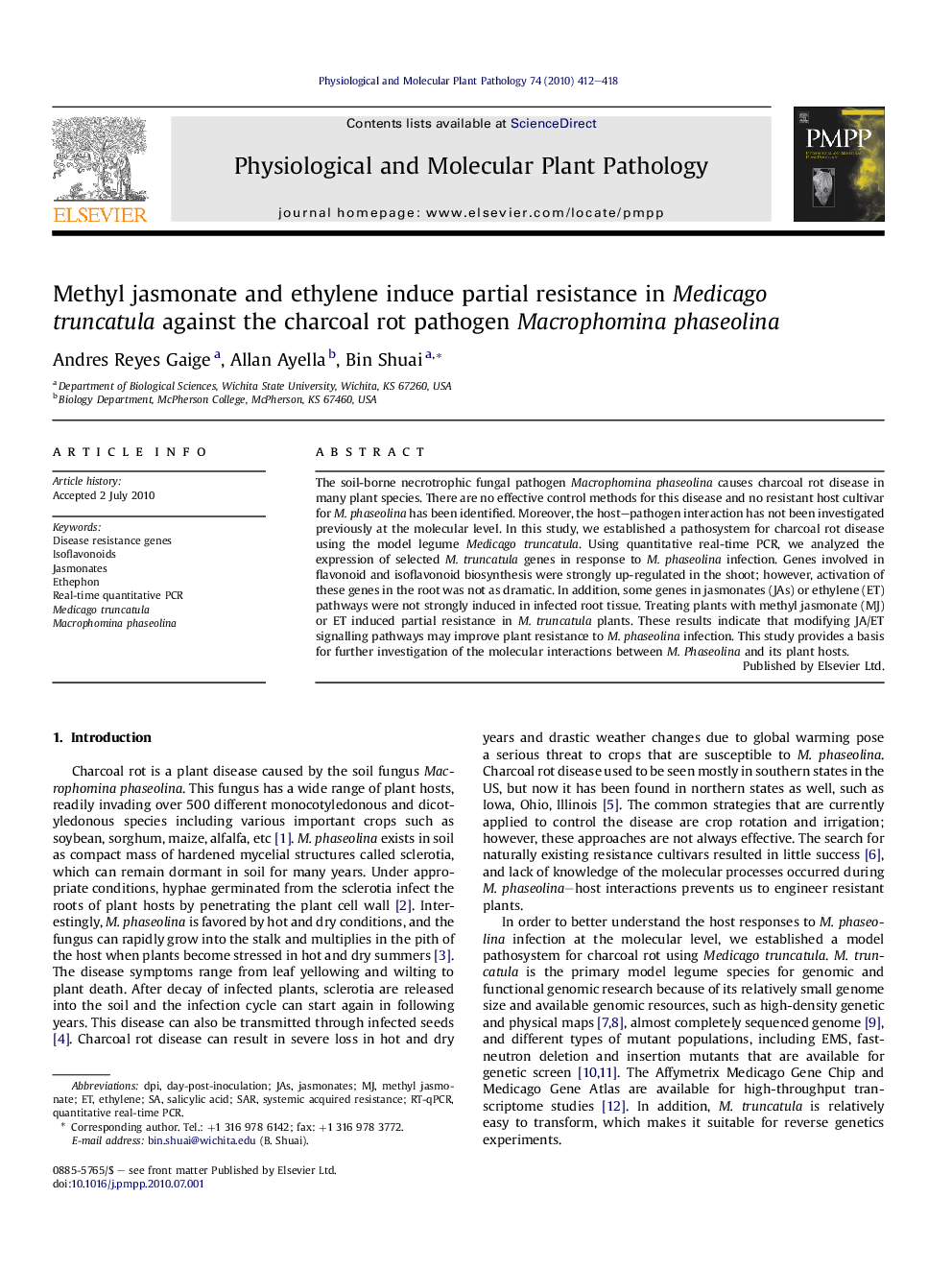| Article ID | Journal | Published Year | Pages | File Type |
|---|---|---|---|---|
| 2836508 | Physiological and Molecular Plant Pathology | 2010 | 7 Pages |
The soil-borne necrotrophic fungal pathogen Macrophomina phaseolina causes charcoal rot disease in many plant species. There are no effective control methods for this disease and no resistant host cultivar for M. phaseolina has been identified. Moreover, the host–pathogen interaction has not been investigated previously at the molecular level. In this study, we established a pathosystem for charcoal rot disease using the model legume Medicago truncatula. Using quantitative real-time PCR, we analyzed the expression of selected M. truncatula genes in response to M. phaseolina infection. Genes involved in flavonoid and isoflavonoid biosynthesis were strongly up-regulated in the shoot; however, activation of these genes in the root was not as dramatic. In addition, some genes in jasmonates (JAs) or ethylene (ET) pathways were not strongly induced in infected root tissue. Treating plants with methyl jasmonate (MJ) or ET induced partial resistance in M. truncatula plants. These results indicate that modifying JA/ET signalling pathways may improve plant resistance to M. phaseolina infection. This study provides a basis for further investigation of the molecular interactions between M. Phaseolina and its plant hosts.
Research highlights► Medicago truncatula was used to establish a model pathosystem to study charcoal rot; ► Genes in several disease response pathways were induced upon infection; ► Methyl jasmonate and ethylene induce partial resistance against Macrophomina phaseolina.
